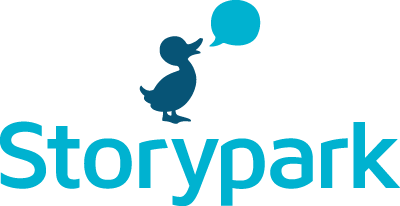Leaders across the ECE sector are being forced to rethink many parts of their operations as Covid-19 changes perceptions, practices and permitted activities.
Over the last two weeks, I’ve been talking with CEO’s and leaders of ECE services in Australia, Canada and New Zealand. This article shares some of their thinking around Covid-19 with the hope of supporting you to create the best possible outcomes for your team and community.
Here’s the 10 considerations that I thought were most important:
- It is very hard to rebuild occupancy once you lose it, and not staying connected with and caring for parents during this difficult time will result in a reputation loss. Parents who were well supported will remember and appreciate this and others who weren’t may shift. Redundancies will mean parents remove children from ECE for some time and this may open up spaces at desirable centres. Leaders who have completed initial operational response plans and are now designing nurturing family experience plans.
- Parent expectations following Covid-19 are likely to change, especially if closures are prolonged. Video check-ins and updates may be more common, potentially opening coaching opportunities and additional services for parents. Leaders are thinking about their Covid-19 response as being the first step towards a way of supporting children in the home learning context (and a potential new revenue stream).
- The ‘unknownness’ and impact of Covid-19 are magnifying usual stress levels so self-care and self-regulation are even more important for leaders and teams. This is a time to develop emotional intelligence and reflect on what this means within a profession that is typically very selfless, where people give so fully of themselves, in service to children and families.
- Multi-site operators are needing to be more centralised, and support their services in different ways. This includes crafting policies and communications centrally as centres become less active and autonomous. Storypark’s suite of tools for multi-site operators are being utilised in new ways, including sharing new guidelines, communications and resources to families and staff.
- When Covid-19 isolation measures relax again, children and their families will feel vulnerable and unsettled. If they have a consistent experience and connection with ECE services this will help ensure things still feel familiar. This familiarity and connection is going to be key in supporting children’s transitions back to ECE.
- Restrictions imposed by Covid-19 isolation measures mean professional development and training needs to happen in new (non face-to-face) ways. ECE is a globally under-funded profession with an under supply of educators. Retaining staff is always a priority, and Covid-19 funding changes makes this even harder than usual. Creating a clear pathway for growth and career development, strong connections with peers and mentors and supportive communications are all key elements of staff retention. New initiatives like video coaching/mentoring, online peer-peer learning, digital portfolios and personal development plans are therefore likely to last beyond Covid-19. Storypark is seeing a rise in the adoption and use of our private ‘Communities of Practice’ available to multi-site operators as these enable the above initiatives.
- Leaders are recognising the unique opportunity Covid-19 has created to promote the important and educated work teachers do in regards to curriculum and learning. What do families think we do all day if educators are simply sending a list of activities to keep children busy? How do we share thought-out and well-executed support that helps parents understand the INTENT behind what we do, and how play-based activities can highlight and support specific developmental needs? For this reason some operators are creating call plans to collaborate with parents around plans to support their child’s interests each week.
- The definition of ‘family engagement’ has changed significantly. For centres in Australia ‘pick up and drop off’ is very brief and even less interactive than usual. For centres who are closed or families in isolation ‘family engagement’ looks more like families documenting children’s activities and sharing to educators. This is forcing educators to think about how to support family digital documentation, how to invite comments and contributions and supporting parents’ confidence in creating home learning experiences.
- Leaders and teams are getting creative and using what they have to best serve children and families. Some great examples of this include: putting together activity boxes at the centre based on a child’s interests and parents driving past without getting out of car to pick them up; including the early learning centre’s chefs in Storypark and encouraging to share children’s favourite recipes; reading stories and facilitating play via video (either live streaming or recorded).
- The essential role early childhood education plays in our society is (surely) going to be highlighted to families (voters) and governments. Not only from a productivity perspective in terms of its value to parents, but in helping children get the best possible start in life. While Covid-19 is a terrible crisis, it may change the future of ECE, embedding its position even more deeply in our social fabric (and government funding priorities).
Peter Dixon,
Co-CEO
P.S. if you’re interested to read about the insights gained from changes in practice as a result of Covid-19 in the Chinese ECE landscape this article is really interesting.






